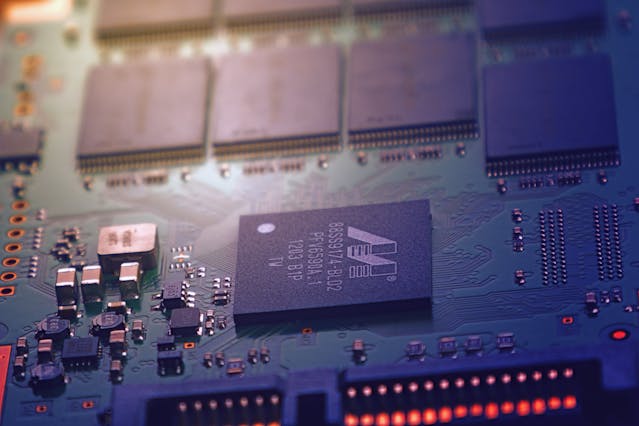Tech Issues to Be Ready For When Starting an Online Business
What do you need to start a business?
“Three simple things,” Wendy’s founder Dave Thomas once said. “Know your product better than anyone, know your customer, and have a burning desire to succeed.”
That might have been enough when Thomas was setting up shop, but today’s entrepreneurs don’t stand a chance without cutting-edge technology.
There’s no better time than now to start an online business. Here are the tech bare essentials for taking your business online.
Table of Contents
#1 Reliable Hardware
Startup costs are significantly lower in e-commerce than in traditional retail. There’s a lot you can live without until your business grows, but don’t skimp on hardware.
Quality hardware will keep you organized and streamline day-to-day management tasks. With proper maintenance and regular updates, it lasts for years. Yes, it’s a sizable investment, but it pays off in the long run.
If you must decide between a desktop computer or a laptop, consider how you plan to run your business.
Do you plan to largely operate out of a single location, or will you be on the road?
Will you attend a lot of meetings?
You’ll get more options and a larger display screen with a desktop, but a laptop is better for businesses on the go.
Portability and easy access to your files are strong considerations if you’ll be making a lot of presentations.
#2 Internet Connection
Connectivity is critical to success. You need enough bandwidth to operate as fast as the internet, and that’s blazing fast these days.
Invest in a high-quality, dual-band wireless router.
There are numerous benefits:
- You can connect multiple devices from anywhere within your router’s range.
- Modern routers configure and prioritize bandwidth for you.
- Most wireless routers come with built-in firewalls to ensure privacy and protection.
- You can easily create a separate, secure network.
- Routers eliminate the need for space-wasting cords and cables.
Mind you, connectivity depends largely on your internet service provider. Earthlink internet is one such provider and is available in all 50 states. Consider your needs and compare shop providers in your area to find what is best for you.
#3 Web Hosting
Where will you store your website?
There are five common types of hosting: shared, dedicated, virtual private server, cloud, and managed.
The choice boils down to:
- How much customization do you need
- What level of security do you require
- How much web traffic do you expect to have
- How much do you want to spend
- How tech-savvy you are
In short, do your homework.
Each type of hosting has its pros and cons.
Shared is great for starters when you’re a solopreneur, but once you establish your business, you would have to move to dedicated cloud services to handle the load and security requirements.
#4 Security and Backups
According to the FBI, internet-related theft, fraud, and exploitation led to a whopping $2.7 billion in losses in 2018.
Small companies are just as vulnerable as large corporations. Your online business is susceptible to malware, viruses, ransomware, and phishing attacks.
Make sure that you have the latest anti-virus software, and keep it updated.
Regularly back up sensitive data like client information, employee files, and financial spreadsheets.
Automatic backups are ideal. Keep copies somewhere off-site or in the cloud.
The U.S. Small Business Administration website has great information on preventing and responding to cyberattacks.
#5 Speed
If there’s one must-have for online businesses, it’s speed.
Consumers are increasingly impatient.
- They’re used to next-day delivery.
- They expect your website to load in two or three seconds.
- They want answers immediately.
That means all your technology must be up to speed.
Again, to some extent, you’re at the mercy of your internet service provider. However, the lack of speed might also be a hardware problem.
Boost productivity and prolong the life of your computer by regularly optimizing it.
It’s easier than you think to increase speed and storage space. There are tools for getting rid of unwanted files, documents, images, and videos that are slowing down your operations.
Sluggish computers are also at greater risk for bugs and cyberattacks.
You can also review the best satellite internet options as it could be that this might be the best solution for your needs.
Common Tech Issues for E-retailers
There’s a considerable learning curve to starting an online business, but here are some common pitfalls to avoid.
Failing to Verify Identity
How can you be sure that a user who fills in a form on your page is truly an interested customer?
Stay one step ahead of the hackers with software that verifies identity in real-time.
Failing to Earn Consumers’ Trust
Technology has more to do with this than you might think.
A recent survey revealed that around 1 in 5 shoppers had abandoned an online shopping cart because they didn’t trust the site with their payment information.
Have your website verified by a digital certificate provider like Norton, Google Trusted Store, or GeoTrust.
Ranking Low in SERP
The rules change all the time, so stay on top of them.
Google now tracks how much time users spend on your site and how they engage. It rewards websites that provide excellent user experience with a higher ranking.
On the other hand, algorithms punish websites for things like slow loading time, keyword stuffing, and broken links.
Speed and top-quality content are essential.
Plan on optimizing your website for mobile users. Google’s mobile-first indexing looks at the mobile version of your site before any other.
Not Providing a Seamless Omnichannel Experience
You have to meet potential customers where they are, and they’re everywhere nowadays: online, on their cell phone apps, and on a wide variety of social media platforms.
Make sure that your brand is everywhere too.
Being Slow to Upgrade
It’s hard to stay competitive with slow, underpowered computers and poor cellphone reception.
When old equipment has even the slightest impact on productivity, it’s time to upgrade.
Falling Behind on Regulatory Compliance
If your business is related to health care, law, government, financial services, or credit card processing, you could face stiff fines or harsh consequences for privacy breaches.
Install first-rate compliance management software.
Conclusion
Nothing grows a business like the latest technology. Invest in tech and software solutions to keep your business healthy, fast, accessible, and above all, customer-oriented.









